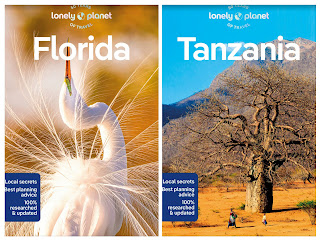Is it worth buying a travel guide?
Do people still buy travel guides before setting off on an adventure? The answer is yes, many, but the way we use guidebooks has changed a lot over the years. In the past people would rely on their travel guide 100%, they clung onto their bible of a destination, lost in the world without useful city maps to refer to and recommended rooms. These days a lot of pre-planning begins online. We see recommendations of dream destinations to visit on Instagram and TikTok, and book rooms in advance on booking.com and Airbnb. Google maps helps us navigate the streets, and Uber and Ola often transport us around. So why would you need to carry a hefty guidebook around? The truth of the matter is, that if you really want to get to the heart of a destination, the planning and suggested routes and itineraries in travel guides such as Lonely Planet and Rough Guides are the most efficient and reliable way to get an overview and help you plan your adventure. Social media and the internet is wonderful for inspiration, but to get a strong picture of what there is to explore in a country or continent, a guidebook written by the experts often wins hands down. There is so much bias online, companies producing content to promote hotels and tour companies, and affiliate businesses attempting to win your click throughs and earn a commision. With a guidebook you're buying independent advice, their main aim being to help you plan the experience of a lifetime!
We would love to hear which guidebooks you prefer to use. E.T.G. champion the giants Lonely Planet, Rough Guides and Bradt. But there are many alternatives: Frommer's, Reise, Moon Travel Guides, DK Eyewitness, Time Out, Insight Guides, and many more.
Feel free to comment below, or share your thoughts on X (Twitter) @ebook_travel



